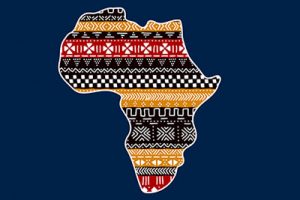
– stock.adobe.com)
The World Health Organization needs $123 million to feed people in the greater Horn of Africa through December 2022.
According to a press release, the area “faces an unprecedented food crisis.”
More than 80 million in seven countries, including Djibouti, Ethiopia, Kenya, Somalia, South Sudan, Sudan and Uganda, are food insecure. WHO said that 37.5 million are classified in IPC phase 3, which is a crisis point at which individuals must sell their possessions to feed themselves and their families. Malnutrition is abundant.
Conflict, climate change and the COVID-19 pandemic have created “a hunger hotspot with disastrous consequences for the health and lives of its people.”
“Hunger is a direct threat to the health and survival of millions of people in the greater Horn of Africa, but it also weakens the body’s defenses and opens the door to disease,” Dr. Tedros Adhanom Ghebreyesus, WHO Director-General, said in the press release. “WHO is looking to the international community to support our work on the ground responding to this dual threat, providing treatment for malnourished people, and defending them against infectious diseases.”
Funds raised will protect lives by enabling countries to detect and respond to disease outbreaks, procuring and ensuring the supply of life-saving medicines and equipment, identifying and filling gaps in health care provisions, and providing treatment to sick and severely malnourished children.
“Ensuring people have enough to eat is central,” said Executive Director of WHO’s Health Emergencies Programme Dr. Michael Ryan in the press release. “Ensuring that they have safe water is central. But in situations like these, access to basic health services is also central. Services like therapeutic feeding programmes, primary health care, immunization, safe deliveries and mother and child services can be the difference between life and death for those caught up in these awful circumstances.”
WHO authorized $16.5 million from its Contingency Fund for Emergencies to provide access to health services, treat sick children with severe malnutrition and prevent, detect and respond to infectious disease outbreaks, according to the press release.
An estimated 4.2 million refugees and asylum seekers live in the region, and the number is expected to increase as more are forced to leave their homes.
The situation is worsening as the upcoming rainy season is expected to fail. Measles has been reported in six of the seven countries amid an environment of low vaccinations, while countries also fight cholera, meningitis, the scarcity of clean water and lack of food. According to WHO, deaths of children and women in childbirth have been reported, and gender-based violence is increasing.










